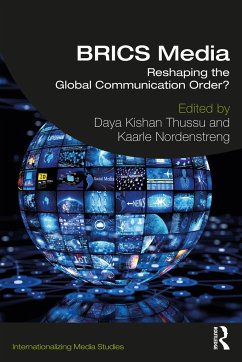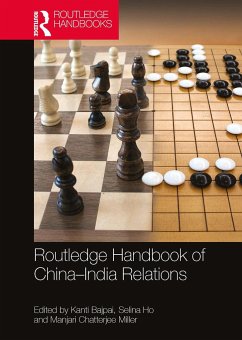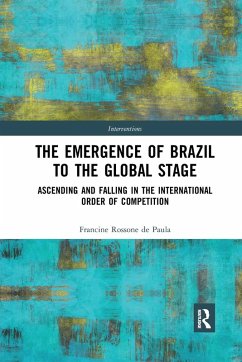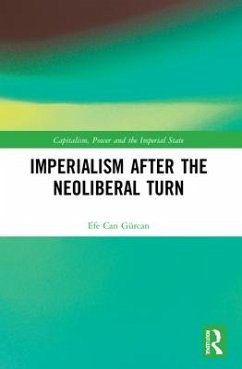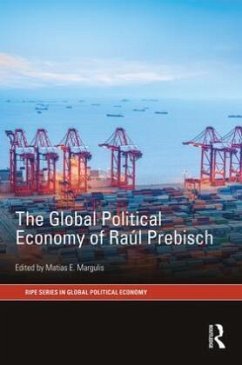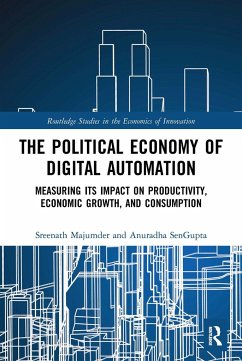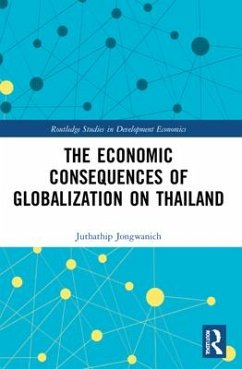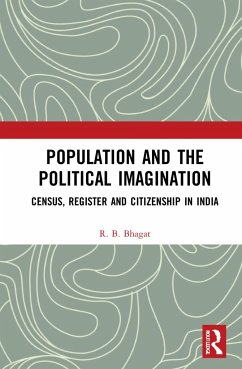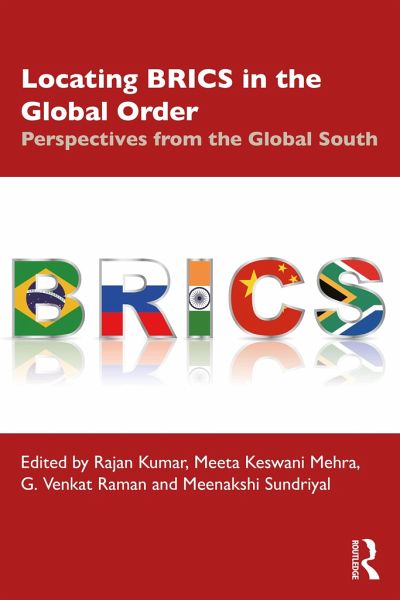
Locating BRICS in the Global Order
Perspectives from the Global South
Herausgegeben: Kumar, Rajan; Mehra, Meeta Keswani; Raman, G. Venkat; Sundriyal, Meenakshi
Versandkostenfrei!
Versandfertig in 6-10 Tagen
45,99 €
inkl. MwSt.

PAYBACK Punkte
23 °P sammeln!
BRICS is conceivably the most formidable organisation to have emerged in the post-Cold War period in the non-Western world. This book highlights the significance of BRICS in a wider global context and foregrounds the long-pending demand for the reform of global governance institutions.The volume:- Traces how the organisation came into being and looks at the distinct norms and principles espoused by it- Discusses the glaring limitations of the existing institutions of global governance- Explores the economic growth and the rising political influence of BRICS states- Analyses the internal threat...
BRICS is conceivably the most formidable organisation to have emerged in the post-Cold War period in the non-Western world. This book highlights the significance of BRICS in a wider global context and foregrounds the long-pending demand for the reform of global governance institutions.
The volume:
- Traces how the organisation came into being and looks at the distinct norms and principles espoused by it
- Discusses the glaring limitations of the existing institutions of global governance
- Explores the economic growth and the rising political influence of BRICS states
- Analyses the internal threats to the survival of the organisation and assesses its prospects in the foreseeable future.
A significant intervention in situating BRICS as one of the major players in global governance, the book will be of great interest to students and scholars of international political economy, international business and finance, international relations, politics, and Global South Studies.
The volume:
- Traces how the organisation came into being and looks at the distinct norms and principles espoused by it
- Discusses the glaring limitations of the existing institutions of global governance
- Explores the economic growth and the rising political influence of BRICS states
- Analyses the internal threats to the survival of the organisation and assesses its prospects in the foreseeable future.
A significant intervention in situating BRICS as one of the major players in global governance, the book will be of great interest to students and scholars of international political economy, international business and finance, international relations, politics, and Global South Studies.






